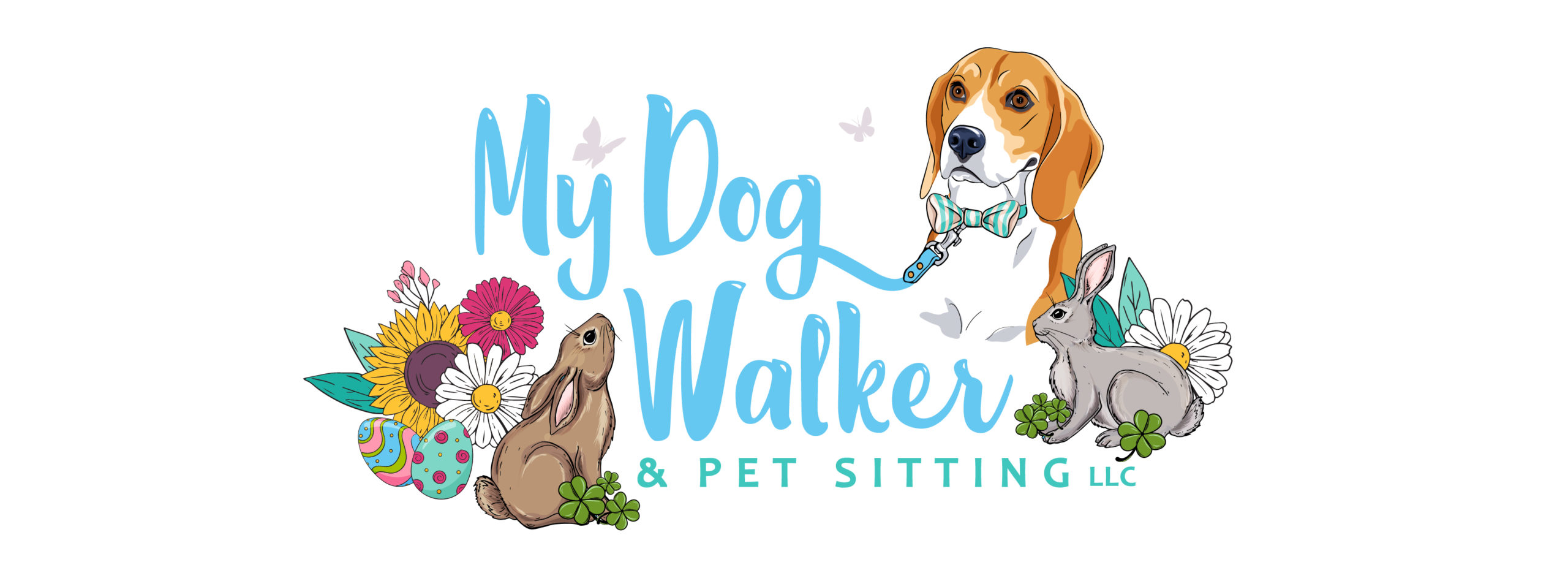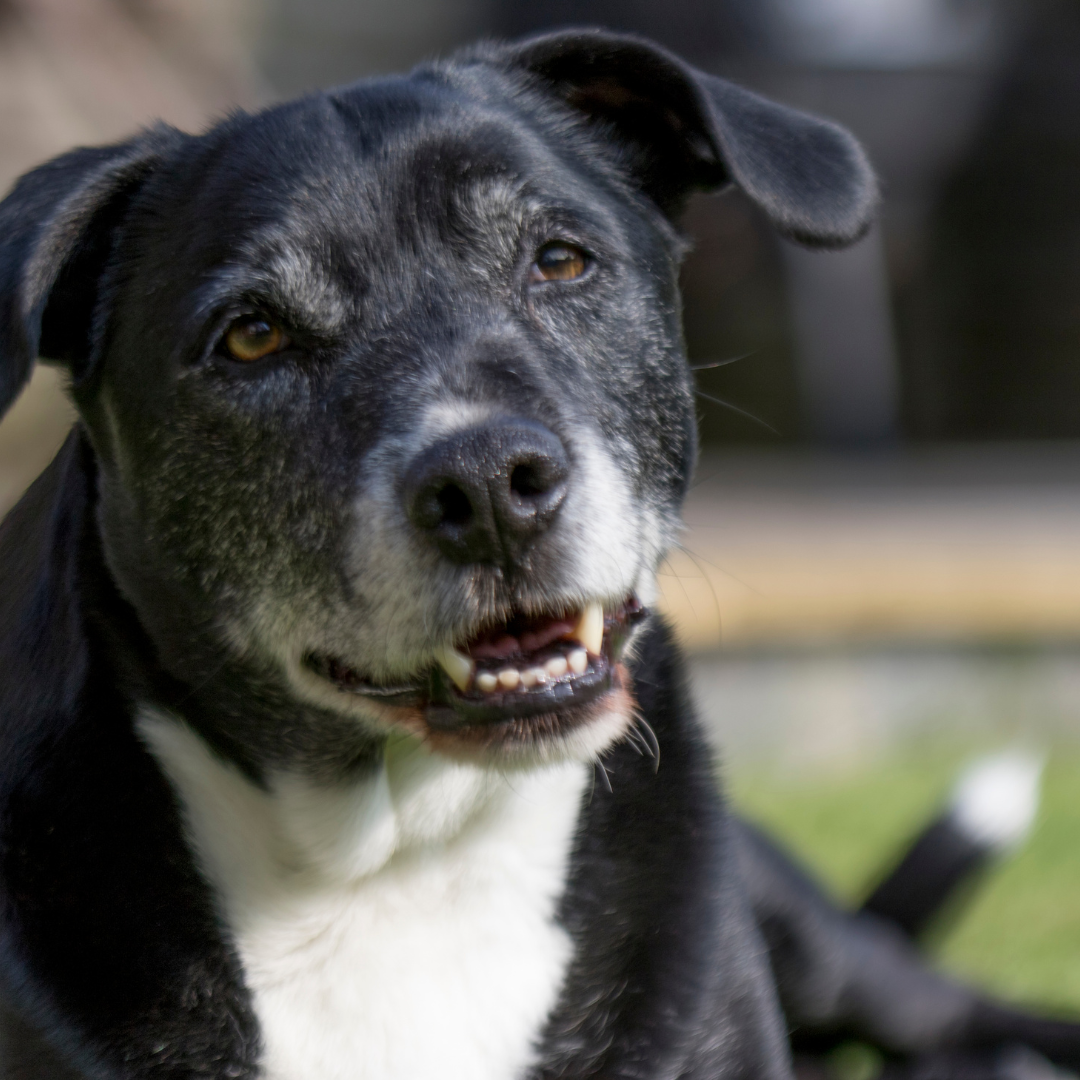
Discussing The Best Methods And Ways To Care For Senior Dogs In Order To Give Them The Best Life Possible
Senior dogs make for truly wonderful companions. However, they typically require more care and support than younger dogs. As dogs age, they are more at risk of developing health problems. This is why it’s so important to monitor a senior dog’s health as they age.
This article will discuss the best and most practical ways to care for senior dogs. Here at My Dog Walker & Pet Sitting, we are not veterinary professionals. However, we are pet caregivers and have a great deal of experience caring for dogs of all ages. The information presented in this article is based on our own experiences and articles published by A.V.M.A. (American Veterinary Medical Institute), VCA Animal Hospitals, and Pet M.D.
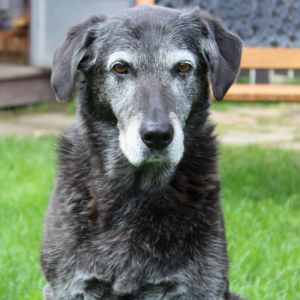
When Does A Dog Become A Senior?
The age a dog is considered a senior varies depending upon the breed. For example, medium and large-sized breeds, like border collies, are considered seniors at the age of 7. On the other hand, small breeds, like dachshunds, are considered seniors at age 11. Additionally, most mixed breeds are considered senior at the age of 7, but this will vary depending on how much of what breed is in them.
Common Health Problems In Senior Dogs
While it’s easy to notice the external signs of aging in senior dogs, it’s important to remember that they are aging on the inside too. The A.V.M.A. reports that cancer is the leading cause of death in roughly 50% of dogs.
Other common health problems in senior dogs are, but not limited to, diabetes, difficulty eating and/or breathing, heart disease, joint disease, kidney disease, liver disease, obesity, vision and/or hearing loss, and decreased appetite and/or body weight.
How To Care For Senior Dogs:
Every senior dog is different and will require different needs based on their unique circumstances. Here we will mention some general recommendations for overall health care for senior dogs.
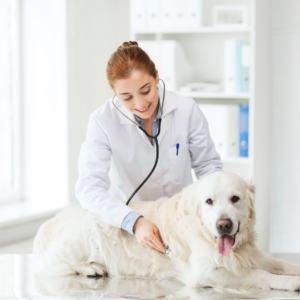
Routine Checkups
One of the most important things you can do for your senior dog is take them to the veterinarian every six months. An adult dog can get by with only one veterinarian visit a year. But, this is not the case for senior dogs. This is because senior dogs are more susceptible to various illnesses and diseases. Taking them to the veterinarian more often can help catch these illnesses and/or diseases early before they get out of hand.
Senior Dog Nutrition
As the expression goes, “you are what you eat.” As dogs get older, their nutrition needs may change. Because of this, we recommend consulting with your veterinarian to figure out what your senior dog needs and doesn’t need in their diet. Many dog food brands like Blue Buffalo and Royal Canin offer dry dog food formulas that specifically cater to senior dogs and their needs.
Senior Dog Supplements
As our furry friends hit their senior years, their body’s begin to slowly break down. This results in our dog’s not moving as fast or as gracefully as they once did. However, there are many different supplements on the market that can help make this process more gradual and less painful.
A supplement can be defined as a substance that is used to complete or enhance one’s diet. A supplement usually contains vitamins, minerals, herbs, amino acids, or a combination of them all. For a full guide about senior dog supplements, click here.
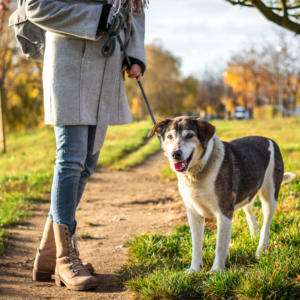
Exercise & Stimulation
Just because a senior dog moves slower than they used to, doesn’t mean they shouldn’t be getting some exercise. All dogs, regardless of age, need daily exercise to stay happy and healthy. Even just going for a slow, casual walk every day is very beneficial to your senior dog’s health.
Additionally, these daily walks provide some much needed stimulation too. Everyone, including dogs, can get bored sitting indoors all day. Getting a daily dose of mentally stimulating activities, such as going for walks, will help keep your dog’s mind healthy and happy.
Grooming
Lastly, it’s important to keep your senior dog well groomed. Dogs are pretty self-sufficient about using their tongue to groom themselves. But, over time, their ability to groom themselves diminishes and it becomes much more difficult for them to stay clean. That’s why taking them to the groomer on a regular basis is so important. How often you should take your dog to the groomer will vary depending upon the breed.
Additionally, it’s a good idea to brush your senior dog on a daily basis. Daily brushing will help remove any loose, dead hair and promote good hair growth. Brushing your dog daily is also a great bonding experience for you and your dog. Also, having a clean, well brushed coat will help make your senior dog feel better about themselves. Mental health affects physical health and vice versa.
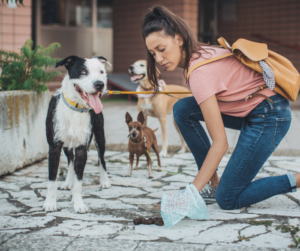
Hire A Pet Sitter For Your Senior Dog!
If you or someone you know is looking for a pet sitter or dog walker, then look no further than My Dog Walker & Pet Sitting. We are fully insured & bonded and have over 10 years of experience working with animals. Click here to check out our wide variety of pet sitting services including in-home pet sitting and routine dog walking.
We currently service the Medford, Medford Lakes, Shamong, and Tabernacle, NJ areas. To become a client, click here or give us a call at 856-217-2781. We hope to hear from you soon and happy Deaf Dog Awareness Week!
